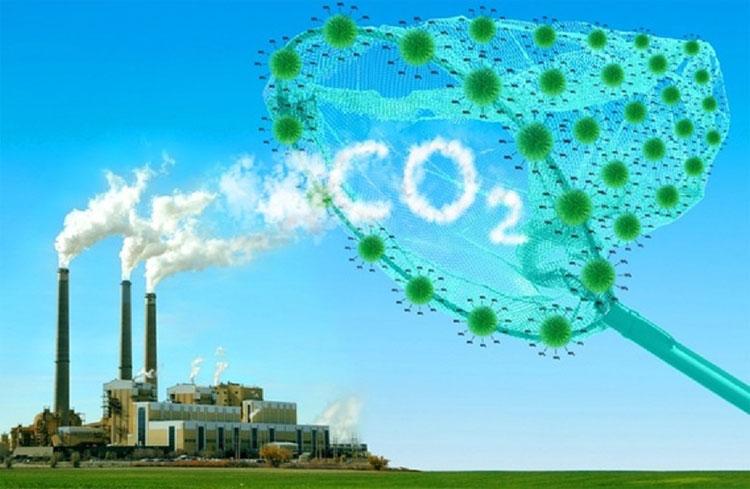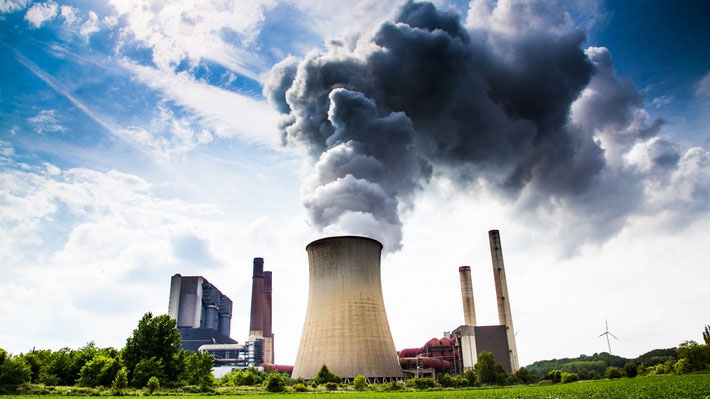Turn CO2 emissions into baking soda additives
An Indian chemical factory has successfully run a system to recycle CO2 emissions and convert this gas to produce baking soda.
Tuticorin Alkali Chemicals Company, located in the industrial city of Tuticorin, is expected to successfully convert 60,000 tons of CO2 emissions each year into baking soda and other chemicals. This technology development team said it is possible to convert up to 10% of total emissions from coal on a global scale.

CO2 recovery technology is not new.
Although CO2 recovery technology is no longer new, the improvement point here is that Tuticorin has installed the system towards maximizing profit, not merely recovering emissions.
"We do business, not environmentalists, so for us, profit is above all. Therefore, the recovered gas must be reproduced to be profitable." - Director factory, Ramachadran Gopalan said.
The inventors of this technology are London-based Carbon Clean Solutions, which has developed a similar system funded by the British government. The operating principle of this system is to use special chemicals to filter out CO2 molecules.

CO2 emitted from plants is extremely large.
In Tuticorin's operating system, the plant uses thermal energy from coal to operate the steam system of the chemical production cycle. Steam contains chemicals that separate CO 2 from exhaust gas before they are released through the chimney. After being filtered, CO 2 mixes with salt and ammonia in a special tank. The product of this filtration process can be used to make baking soda or some other compound for use in the manufacture of glass, bleach, deodorant and sweetener.
The most significant improvement of this system compared to previous CO2 absorption cycles is the replacement of ineffective amine compounds with a high-efficiency and energy-saving membrane filter. so many, so much.

Economic efficiency is initially negligible but very positive.
Another significant advantage of the system is that it has reused CO 2 to produce other products, not merely recover and store as many places currently apply. This is a big step in building a recovery and regeneration system for CO2 to create new products. Helping reduce emissions becomes more economical and attractive to economists.
"We need to do everything we can to minimize the harmful effects of using fossil fuels and being able to reuse CO2 is such a good news, even if it's only a small amount" - Ronald Oxburgh, The head of the UK government's emissions reduction advisory group added.
- The uses of baking soda surprise you
- Do you know how to use baking soda properly?
- Surprise with the wonderful lightning created just by the things in the house
- Very simple ways to prevent and treat diseases you should know
- Do you know how to wash pesticides outside the apple shell according to scientific standards?
- Drinking Soda increases violence?
- Drinking too much soda water can cause arrhythmias
- Japan: Turn CO2 into natural gas
- Two types of food additives have estrogen-like effects
- Experiments creating
- Apply nano additives to save fuel
- Additives in toothpaste can cause infertility
 Is the magnetic North Pole shift dangerous to humanity?
Is the magnetic North Pole shift dangerous to humanity? Washington legalizes the recycling of human bodies into fertilizer
Washington legalizes the recycling of human bodies into fertilizer Lightning stone - the mysterious guest
Lightning stone - the mysterious guest Stunned by the mysterious sunset, strange appearance
Stunned by the mysterious sunset, strange appearance Supervolcano awakening could cause global chaos
Supervolcano awakening could cause global chaos  Dangerous orange plume covers the planet, UNEP issues urgent report: Action needed now!
Dangerous orange plume covers the planet, UNEP issues urgent report: Action needed now!  What are greenhouse gases?
What are greenhouse gases?  Japan builds power plant using fermented gas fuel from cow dung
Japan builds power plant using fermented gas fuel from cow dung  Why are the world's billionaires splurging on carbon offsets?
Why are the world's billionaires splurging on carbon offsets?  Shock: Concentration of atmospheric CO2 has reached the highest point in human history
Shock: Concentration of atmospheric CO2 has reached the highest point in human history 